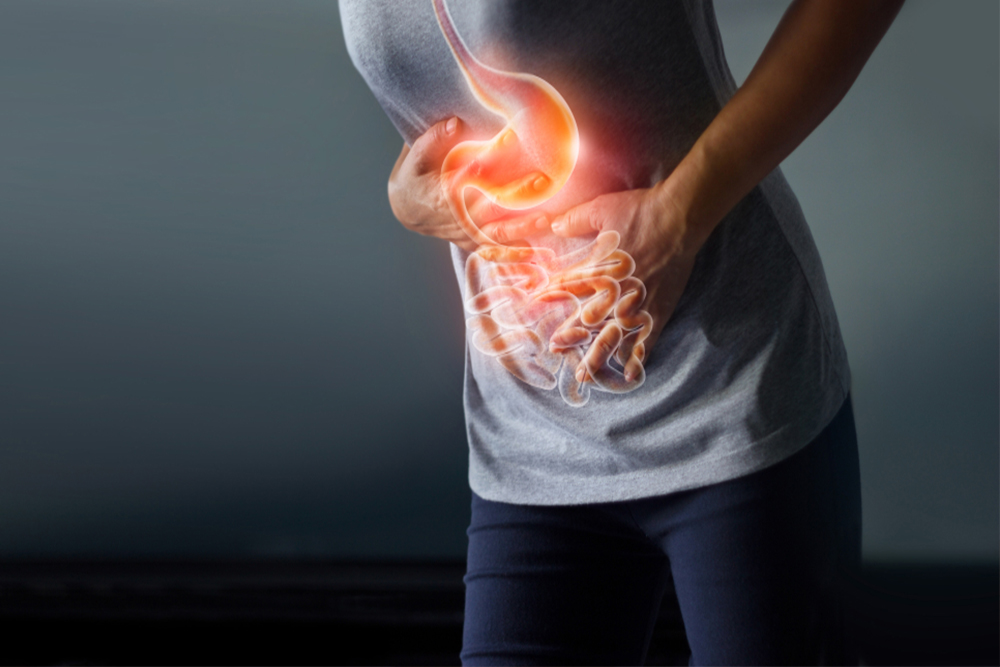Is it hard for you after eating? Do you have problems with bloating? Do you have heartburn? Do you sometimes suffer from constipation or diarrhea? If you went to a doctor and he ruled out any organ disease that could cause your problems, then your symptoms fall into a set of digestive problems that experts call “functional dyspepsia”.
Functional dyspepsia
Depending on which part of the digestive tract problems manifest themselves, we are talking about upper or lower type dyspepsia. Symptoms of upper type dyspepsia (formerly gastric dyspepsia) include the aforementioned heartburn (heartburn), belching, abdominal pain, nausea after eating, feeling full after eating, loss of appetite, etc.
Lower type dyspepsia affects the lower gastrointestinal tract (sometimes also irritable bowel syndrome or intestinal dyspepsia). In this case, it is abdominal pain, bloating, flatulence, constipation or diarrhea, a feeling of incomplete bowel movement.
Why do digestive disorders occur?
As already mentioned, with functional digestive disorders, the exact cause cannot be determined with certainty. The function of the digestive system is impaired (hypersensitivity, decreased or increased intestinal motility, violation of the relationship between the nervous and digestive systems), and not the organs themselves. However, the factors that usually contribute to the development of digestive problems are quite well known. This is about:
Prolonged stress and tension
Unbalanced, unhealthy or otherwise irritating diet (so-called fast food, strongly spicy food, sweets, traditional Czech cuisine, carbonated drinks, excessive consumption of vegetables)
Harsh diets
Lack of exercise and sedentary lifestyle
Smoking and excessive alcohol consumption
How can you support your own digestion?
The main measure for digestive problems is the adjustment of diet and eating habits . Find out what foods are bothering you and exclude them from your diet. In general, people with “weaker” digestion should avoid hard-to-digest foods such as fried, fatty, spicy, spicy or exotic foods. Also, sweet food and, of course, carbonated drinks, strong coffee and tea and alcohol are not recommended. In addition, raw vegetables do not benefit many. Give preference to boiled and stewed dishes. Try to eat in small portions 5-6 times a day, chewing thoroughly.
Move! For intestinal peristalsis (intestinal peristalsis) and, consequently, proper movement of food through the digestive tract, movement is necessary – only 30 minutes of brisk walking every day, for example, on the way from work.
A sufficient amount of fluid is also important for proper digestion, an adult should drink about 2 liters of water a day.
Reduce or, preferably, completely give up smoking – smokers suffer from digestive problems much more than non-smokers.
When to see a doctor with “bad” digestion?
You can usually cope with common digestive problems caused, for example, by a dietary mistake, even without a doctor. However, there are some warning signs associated with dyspepsia, about which you should always consult a doctor. Consult a doctor in the following cases:
The problem arose suddenly after 45 years.
You feel sick all the time.
If you already have resistance to most meals.
You’ve been tired for a long time.
You lose weight quickly and unintentionally (more than 5% of your body weight, i.e. 3.5 kg for a person weighing 70 kg).
When the problem gets worse or doesn’t work with commonly available medications.
If you have serious or hereditary diseases of the digestive tract in your family.
You have diarrhea at night.
In addition to indigestion, there is an increase in temperature or an increase in body temperature.
How can a pharmacy help with an upset stomach?
Choose over-the-counter digestive products depending on the prevailing symptoms. A relatively wide range of medications, dietary supplements, and medical devices are available. You can try them gradually (!) to find out which one brings you the most relief.
Heartburn is used to treat antacids that neutralize stomach acid. You can also try medications that reduce the production of gastric juice, so-called proton pump inhibitors, for short-term treatment.
Prokinetics are drugs that normalize the mobility of the digestive tract. In addition to heartburn, they are also used for nausea and vomiting.
You can support digestion by supplying digestive enzymes of the pancreas (pancreatin), which help to effectively break down the main components of food, especially fats, and thus relieve the unpleasant symptoms of dyspepsia.
The function of the gallbladder and the production of bile for good digestion are stimulated by drugs from the category of choleretics.
Medications or other medications that we professionally call carminative will help with bloating.
Use over-the-counter laxatives or diarrhea medications to treat acute constipation or diarrhea.
Since functional digestive problems may be associated with an imbalance of the intestinal microbiota, the administration of probiotics may be beneficial.
Of course, you can also try herbal preparations in the form of tea or drops.

Leave a Reply